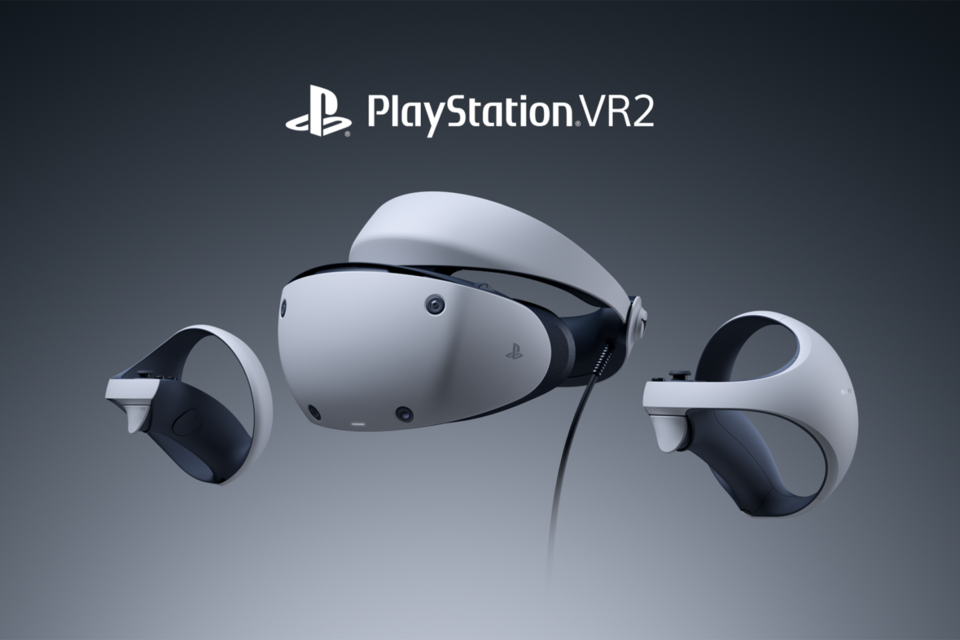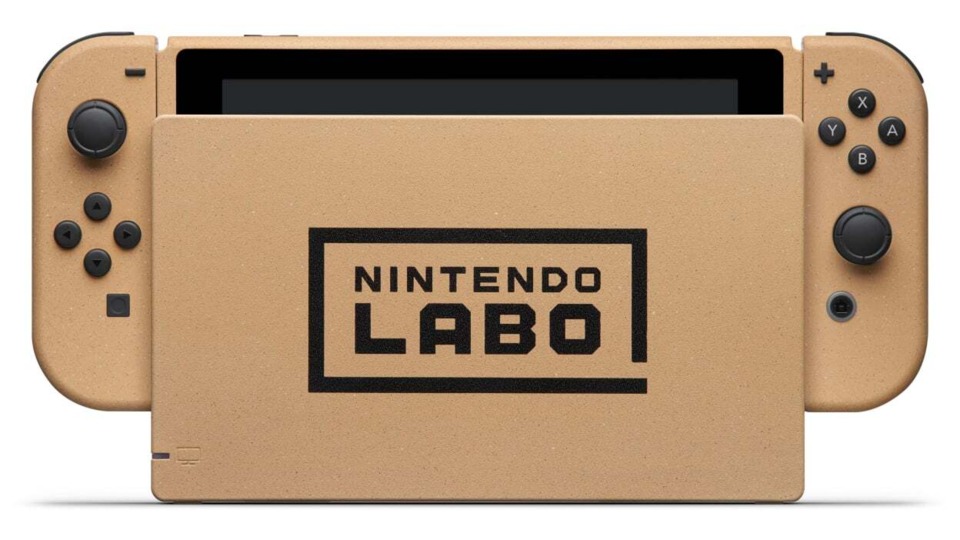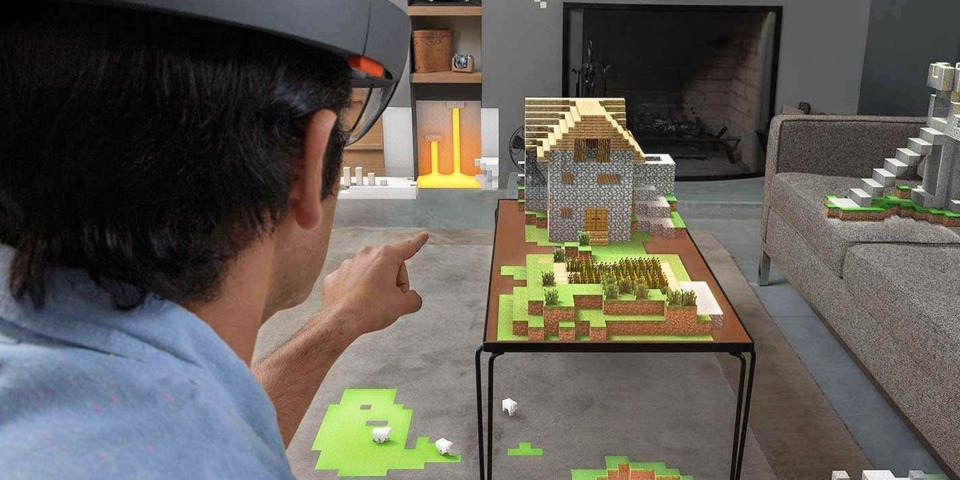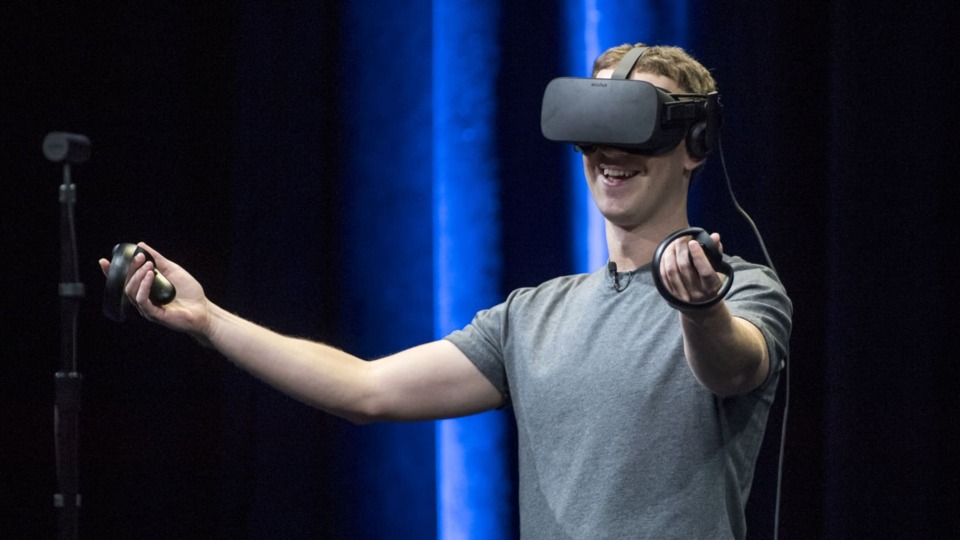Let's Set The Scene

Around mid-March 2024, Bloomberg reported that Sony was "pausing" production of the PSVR2 due to unmoving inventory. As indicated in their report, Bloomberg showed that the PSVR2 has consistently declined in overall sales since its launch, despite other competitors (i.e., Meta) within the VR market seeing the opposite trend with their hardware. Likewise, Bloomberg and The Verge corroborated reports that Sony is still exploring making the PSVR2 usable on PCs, which would unlock it from being a console-exclusive device tied to the PS5. The potential of this PC-oriented pivot in turning the device's fortunes is why Sony is still in the VR hardware market. That's not entirely revelatory news, considering Sony announced PC compatibility with the PSVR2 in February 2024. Nonetheless, there are still grounds for skepticism and concern from early adopters, considering this news also coincides with Sony's decision to shutter London Studio, one of the few in-house studios Sony had dedicated to developing software and games for PSVR2.
2023 and 2024 were not kind to Sony's VR investments, but, as I hinted earlier, while they are not alone, the market for VR is growing, albeit in ways that do not benefit Sony's direction or approach to the technology. In Q4 2023, Meta shipped 1.3 million units, whereas Sony's PSVR2 only shipped ~325,200. Yes, that comes with the caveat of being "units shipped" instead of completed sales, but it shows what retailers are opting for and which software giants are starting to take the reigns of this likely niche market. Likewise, while Apple's Vision Pro is still pegged at the absurd price of $3,499, the International Data Group (i.e., IDC), a market analysis group specializing in technology, estimates "the VR market to grow on average 31.5% per year between 2023 and 2028." Now, there's a massive caveat to that statement: the IDC's estimate predicates almost all of VR's growth on enterprise market gains over consumer-based ones. While Apple's entry into the VR space is bound to net gains in the R&D side of things, which reviews of the Vision Pro seem to suggest, that does not change the fact that the entire world of VR and AR is undergoing a significant pivot to stave away the buyer's remorse some of these software and hardware companies are feeling after investing gobs of money in creating mixed-reality software and manufacturing divisions.
Sony's PSVR2 is not in a position to react to the seismic shifts in the VR market. It is a device with gaming in mind first and other entertainment applications and uses second. Nonetheless, they remain one of the most prominent figures in the realm of consumer VR, and let's not pretend their competitors don't have looming dragons to slay as well. While Apple's Vision Pro enamored critics and its most ardent supporters with great internals, including one of the best displays and a seamless video passthrough setup, it also launched without critical entertainment apps like Netflix and YouTube. Apps from owners that are drawing weary of toeing the line of Apple's closed ecosystem in light of Epic's lawsuit and are groaning at the prospect of making apps with consistent content updates to what many already know will be an infinitesimal userbase. And Meta's VR division is a money pit. Despite what Mark Zuckerberg and everyone else at Meta might say about their VR lab driving up record revenue, they also drew up record costs. There's no doubting if Zuckerberg weren't completely sold on VR being the future, Facebook/Meta would have pulled out of the market entirely.
Meta's Money Pit Is Slowly Becoming A Monopoly

But how bad is Meta's VR lab revenue situation? Every quarter, Meta/Facebook burns through billions of dollars to make progress in furthering its consumer and enterprise metaverse ambitions. Even after Meta called Q4 2024 a "banner year" for its VR division, which it calls Reality Labs, while it proudly advertised that it had generated $1 billion, it also was forced to admit its costs had ballooned to $5.72 billion, representing a total net loss of $4.56 billion in a single quarter. And what was its message to investors? Why it said bluntly in its earnings report, "We expect operating losses to increase meaningfully year-over-year due to our ongoing product development efforts in augmented reality/virtual reality and our investments to further scale our ecosystem." Since 2020, Reality Lab, formerly known as Oculus VR, has not once generated a quarterly loss of less than $1.5 billion. And yet, they indisputably have the world's most extensive user base of any given VR ecosystem. But there's a method to Meta's madness. While firm sales data are fuzzy in tech these days, especially when it comes to VR and AR, Meta's strategy of throwing money at its VR problem has netted them at the lowest estimates, 55% of the VR/AR market share, and on the higher estimates, 75%. If someone will make money in the mixed reality space, it will likely be Meta.
Say all you want about it being a fool's errand, but Zuckerberg and Meta have something almost everyone else in the VR industry lacks: they have an end goal in mind. Meta plans to keep the lights on, regardless of how much money it may cost, as part of a grand strategy to have an almost complete vice grip on the consumer VR market. And with some of its competitors ducking out, scaling things back, or entirely leaving consumer VR in favor of enterprise VR, Meta is slowly but surely developing monopolistic control over the market. It's a small, niche market but still utterly dominated by Meta. Likewise, as it turns to enterprise applications of its VR technology, it increasingly views the consumer side of things as a way to make people less apprehensive about seeing VR used in workplace and industrial settings. For example, if a doctor has some exposure to playing around with Beat Saber at a friend's house, they may be more open to using more advanced versions of the same technology in manipulating projections of human body parts at their hospital. And let's also not dance around the issue of Zuckerberg's metaverse dreams. The play there is relatively simple. Suppose this hardware can be used to host digital meetings and business reviews, with additional tools that allow bosses to assess the engagement and diligence of workers. In that case, they will see an opportunity to sell Meta devices to every corporate business worldwide. It's also a play to inject youth into its social media platforms (i.e., Facebook) as the users of its current platforms, outside of Instagram, are showing signs of getting older despite reasonably steady growth.
There are a few messages to pull from this information. The first is, if a company as "in it" as Meta is still struggling to draw a profit from an unsurprisingly small clientele, why would things be any better for smaller efforts, or in the case of Sony? Is the PSVR2's target audience a fraction of what Meta works with? Probably. The cost of entry for a PSVR2 isn't just the $549.99 price tag of the device; you also need a PS5. Having a VR-ready PC may come to more than the cost of a PS5. Nonetheless, let's not pretend as if one of these doesn't have a massively larger user base with more in-depth software and app support out of the box. Oh, and Meta's Quest 2 is consistently below the PSVR2's price tag across the board and sometimes erring below a $200 price tag. Meta's overall strategy on the consumer side of things is to corner the budget VR headset market, costs be damned, and never look back. No one else is willing to do that because everyone knows it doesn't generate enough revenue to offset expenses. And with the demise of London Studio, it's not as if Sony has an upcoming title to point at to get people excited about the future, which makes their supposed confidence that things will get better with PC compatibility all the odder. All of Meta's VR devices are compatible with Steam via Steam Link at no extra cost and have more extensive libraries immediately. Is Sony's new PC plan for PSVR2 going to open the floodgates to allow third-party marketplaces officially without the use of outside apps like Trinus? If they don't, they don't provide a great value proposition to VR consumers. The Unreal Marketplace even has an officially sanctioned Meta plugin to make its software and marketplace compatible with Meta VR devices. I'm unsure if Sony would EVER allow that to happen in an official capacity.
No, Seriously, Everyone In VR Is Realizing The Money Is In Enterprise

Let's return to that Bloomberg report, which stated that Sony had manufactured over 2 million PSVR2 headsets as of March 18, 2024. That number is well below the 5 million units sold Sony self-reported for the original PSVR in 2019, and AGAIN, with the PSVR2, we are working with the supposed number of units shipped versus units sold. This fact is undoubtedly a shocker, considering Sony was pretty immediate in championing PSVR2 at the onset when it sold 600,000 units in its first six weeks. It's not precisely BREAKING NEWS, but the landscape and appetite for VR have changed since Sony launched the original PSVR in 2016. And yet, Sony continues to have the same VR playbook or sales plan as it did in 2016: sell headsets to as many compatible console owners as possible. This next point is a fun mental exercise, and this only partially relates to Sony, but check out Steam's best-selling VR-only games list and look at how many titles are two years old or more. VR and AR may have had their "peak oil" moment four years ago, but no one talked about it despite all the signs and red flags. And yet, all of this aside, you might be surprised that Sony currently stands as Meta's most significant source of competition. Even if you want to argue that the prospective buyers for a $549.99/€599.99/£529.99 VR headset, alongside a $450 to $500 console, is small, it's still a more extensive workable clientele than what most non-Meta VR companies or subsidiaries are working with presently or in the past. Yet, even if we trust the highest estimates that state Sony has 25% to 30% of the VR market, the future of a VR device tethered to the ownership of a video game console is STILL incredibly bleak.
CNBC reported that in 2023, the overall sales of VR and AR headsets dropped by approximately 40%. When I said AR/VR had experienced its "peak oil moment," I wasn't joking. There may be untapped non-US, non-EU, and non-Japan markets to sell mixed reality headsets to, but the people who want one in the markets where these products have been introduced already have one, and those who don't aren't on the fence about the technology. VR remains relatively divisive and utterly bereft of consumer enthusiasm, as prices for the hardware are increasing, not decreasing. There's no "easy money" selling virtual reality anymore, and that's the main reason why the mixed reality industry is contracting and not expanding, even as profits seem to have risen year-to-date. The landscape of device providers and where they are now perfectly reflects that massive contraction. Valve updated its VR marketplace and OS in 2023, but they have been completely mum about any hardware sequels or revisions to their Steam Index headset despite registering plans for one back in 2019. Despite forging an alliance with Steam and initially making progress against Meta's dominance, HTC's Vive division announced they would mainly transition new devices from consumer VR in favor of enterprise and business endeavors. Despite reviving its XR division out of the ether in response to Apple, Samsung's Gear VR ended support in 2020, though Meta has courted many of these VR users with the Oculus Gear VR app. Finally, when was the last time we heard Nintendo offer any new variety packs or products with its Labo experiment?

And what about AR? The AR landscape has tumbled down a schism of two enterprise-focused paths. Either a) AR tech is being sold to creatives and professionals to assist in the practice of social interactions and applications that benefit from having holographic pictorial supports in activities that cannot be done in person, or b) AR tech is being sold to business owners and bosses that hope to reinvent workplace collaboration to gain more buy-in as return-to-work initiatives are met with pushback or resistance. Those wildly creative Hololense demos at E3 with a person manipulating tiles and blocks in Minecraft using their hands? None of that will ever come to the consumer gaming sphere. Everyone with even a centimeter of skin in the AR industry has given up on making the tech affordable to the layperson or feature-rich enough for AR glasses or lenses to make sense to everyday consumers. Google Glass certainly made a splash when it was first introduced. Still, Google discontinued the consumer division of Google Glass in 2015 in favor of the product becoming enterprise-only, and in March of 2023, Google even discontinued that. Hololens is in an even weirder position, given that Hololens 2 was released in 2019 and Microsoft's CEO, Satya Nadella, has continually affirmed that Microsoft, under his watch, will continue investing in metaverse application software. Still, late in 2023, Microsoft announced it would deprecate Windows Mixed Reality, the platform Windows 10 uses to work in AR settings. Furthermore, layoffs have gutted almost all of Microsoft's mixed reality and AR teams, including the military application division, which was presented as the most likely candidate to make money. This development says a lot about how ready AR is for the real world. So, Sony is basically all that remains if you are curious about jumping into VR or AR as a regular consumer and don't want to send money to Mark Zuckerberg.
So, What's Next? Nothing?
There's one unanswered question about the future of PSVR2 that I and anyone here cannot answer. When the original PSVR sold around five million units during its lifetime, did it make a profit? After factoring in manufacturing costs, R&D, and marketing, did Sony's most successful VR venture butt up against the same hazardous cost overruns others in the VR industry encountered? Regardless of the answer, when trying to discern why the first generation of PSVR worked and sold far better than its technologically improved successor, it's not exactly a secret. Sony's decision to make the PSVR2 have better fidelity, a higher resolution screen, and a better operating system inadvertently did them in as creating an improved VR headset is partly why the PSVR2 cost $100/€200/£150 more than the original PSVR. Likewise, 2016 was a very different market for a VR headset than where PSVR2 found itself in 2023. Is there an element of the first device being lightning in a bottle, something Sony should have known it could not replicate in the future? Sure, and there are hallmarks of the Xbox Kinect here, but at the end of the day, if the price of the PSVR2 was aligned more towards its predecessor, there's no doubt the adoption rate of curious PS5 owners would have been better than where it presently stands.

It's weird to say this point, but if Sony still wants to have skin in the mixed-reality game, they need to make a more affordable VR headset by creating a worse version of the current PSVR2. Hoping that things will improve after opening the PSVR2 to the PC market is a fool's errand unless Sony decides to make the device more open-source and officially allow for third-party apps and marketplaces like Steam and Epic. Otherwise, they're going to get annihilated by Meta. Why would I even consider a PSVR2 on PC to any of Meta's options unless I had enough innate hatred of Facebook and Mark Zuckerberg that I was willing to ignore a more feature-rich alternative, often $200 cheaper? Was making a console VR headset a lousy idea from the onset? Maybe, but gaming and entertainment remain the lion's share of what drives VR sales even as the industry shifts. And as sales slowly move away from the United States and Europe and more towards Japan, China, and Southeast Asia, there's still a possibility of making a pretty penny. But even in markets that might know and respect the Sony brand more than Meta's, can Sony continue to stand against Zuckerberg's willingness to burn money to smote his competition? Also, with it not being a secret that Sony isn't in the best shape, do they have a war chest that can compete against the billions of Instagram dollars Meta is using to further its metaverse?
Sony is also in a terrible position to adapt to the changing landscape in VR, and I refuse to believe that they don't know that. Meta and others embrace a more gradual version of the phone industry's hardware revision timelines wherein new tech is introduced once every two years, and that's something a console-only VR headset cannot embrace. The closure of London Studio is a definite blow to the future as well, but it is increasingly apps, and not standalone VR games, that drive interest and sales. Again, when Apple launched their Vision Pro headset, they were excoriated by many not for lacking exclusive VR video games but for not having Netflix and YouTube support at launch. Sony might be a software and multimedia conglomerate. Regardless, its VR device is positioned to stand on the laurels of its gaming titles, which will not move emergent VR consumers toward their device.
Nonetheless, if Sony decides to leave the consumer VR market entirely, there will be immediate and swift reverberations in the VR industry. Not only would it take yet another consumer VR product line off the shelves, which has been dwindling since the technology's peak during the pandemic, but it would also further Meta's almost monopolistic control on the industry. I don't know about you, but I wouldn't say I like Zuckerberg's ideas for the future of collaborative work through the metaverse. With the possible demise of consumer-grade VR drawing nigh, VR being a tool for corporate oppression and monitoring is likely here, and the reversal and end of this is incredibly murky. So, console-based VR is in its death throes. Microsoft's Holonens project has spurned non-enterprise consumers, and it has been years since Nintendo uttered the words "Labo." Sony's SIE representative was unwilling to put up a front while being interviewed by a mixed-reality enthusiast site and instead called VR "not a core proposition" and a "challenging category" for the company. To me, that means the end is nigh for console VR gaming.
Log in to comment